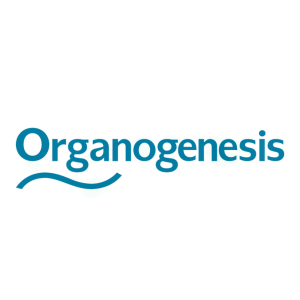Organogenesis Achieves Primary Endpoint in Phase 3 Clinical Trial of ReNu® for Knee Osteoarthritis
Rhea-AI Summary
Organogenesis announced positive top-line data from its Phase 3 clinical trial of ReNu for knee osteoarthritis, achieving a statistically significant reduction in knee pain and maintenance of function at six months. The results open a transformative opportunity for Organogenesis to enter the pain management market. ReNu addresses a critical unmet medical need for knee OA patients, including the most severe cases. The company plans to request an FDA meeting for a Biologics License Application filing.
Positive
Positive top-line data from Phase 3 trial of ReNu showed a statistically significant reduction in knee pain and maintenance of function at six months.
Transformative opportunity for Organogenesis to enter large pain management market with innovative therapy.
ReNu addresses critical unmet medical needs for all knee OA patients, including the most severe cases.
Robust scientific evidence supports ReNu's efficacy and safety profile.
Plan to request FDA meeting for Biologics License Application filing based on positive results.
Negative
End-stage management for severe OA patients is typically total knee replacement, limiting non-surgical treatment options.
Knee OA affects millions of Americans and is a common cause of disability and poor quality of life.
non-surgical treatment options for severe OA patients, which represented 30% of the study population.
Second multi-center clinical trial actively enrolling, with full enrollment expected this year, potentially impacting resources and timelines.
News Market Reaction 1 Alert
On the day this news was published, ORGO declined 0.80%, reflecting a mild negative market reaction.
Data tracked by StockTitan Argus on the day of publication.
- Statistically significant (p=0.0177) reduction in knee pain at six months
- Statistically significant (p<0.0001) maintenance of function at six months
- Transformational opportunity for Organogenesis to enter large and growing pain management market with innovative therapy
- Will address critical unmet medical need for all knee OA patients, including the most severe, if approved
CANTON, Mass., May 02, 2024 (GLOBE NEWSWIRE) -- Organogenesis Holdings Inc. (Nasdaq: ORGO), a leading regenerative medicine company focused on the development, manufacture, and commercialization of product solutions for the Advanced Wound Care and Surgical and Sports Medicine markets, today announced that its Phase 3 randomized control trial evaluating the safety and efficacy of ReNu, a cryopreserved amniotic suspension allograft (ASA), for the management of symptoms associated with knee osteoarthritis (OA) achieved its primary endpoint upon the analysis of positive top line data.
The study demonstrated a statistically significant reduction in knee OA pain at six months as assessed by the Western Ontario and McMaster Universities Arthritis Index pain scale compared with subjects treated with saline control. ReNu showed a favorable safety profile consistent with prior studies.
“These top line results are a milestone achievement for Organogenesis,” said Gary S. Gillheeney, Sr., President and Chief Executive Officer of Organogenesis. “We look forward to sharing this compelling new evidence in our ongoing discussions with the FDA as we believe ReNu can provide clinically meaningful benefits where few non-surgical options exist. If approved, introducing Renu as an innovative pain management solution for the millions of patients suffering from knee OA represents a significant new addressable market opportunity for Organogenesis.”
Knee OA is a degenerative joint disease that is estimated to affect nearly 31.1 million Americans and projected to grow to 34.4 million Americans by 2027. It is ranked among the most common causes of disability and poor quality of life, generally characterized by pain and functionality deficits. Up to 15 percent of knee OA patients are classified as severe (Kellgren-Lawrence [KL] grade 4). End stage management of the disease in these patients is typically a total knee replacement when all other treatment options are exhausted.
“To date, non-surgical treatment options for severe OA patients (KL 4) are limited—which represented approximately
A total of 515 patients with moderate to severe symptomatic knee OA (KL severity grade 2 to grade 4) were randomized to receive a single intra-articular injection of either ReNu or saline control balanced across groups. Patients were randomized to receive ReNu (ASA) 2 mL diluted with 2 mL of saline or 4 mL saline control. Statistically significant reductions in assessed knee pain (p=0.0177) were detected in the ReNu arm compared to the saline control arm six months after injection, and similar rates of adverse events were observed through 12 months of follow up. In addition to improving knee OA pain symptoms, ReNu maintained patient function compared to saline control (p < 0.0001).
“ReNu is supported by a robust and growing volume of scientific evidence,” said Patrick Bilbo, Chief Operating Officer of Organogenesis. “Based on the positive results of this pivotal trial along with our accumulated safety and efficacy data, we now plan to request a meeting with the FDA to discuss the clinical data requirements for a Biologics License Application filing. We look forward to having an update to share later this year and to initiating further studies to expand the potential clinical indications of ReNu.”
Complete analysis of the Phase 3 prospective, double-blind, multicenter, saline-controlled, parallel group clinical trial is expected in May. A second multi-center clinical trial for ReNu is actively enrolling with full enrollment expected this year, ahead of earlier expectations.
About ReNu®
ReNu is a cryopreserved, amniotic suspension allograft (ASA) developed for the management of symptomatic knee osteoarthritis. ReNu consists of amniotic fluid cells and micronized amniotic membrane and contains cellular, growth factor, and extracellular matrix components. ReNu received FDA Regenerative Medicine Advanced Therapy (RMAT) designation for Knee OA in 2021.
About Organogenesis Holdings Inc.
Organogenesis Holdings Inc. is a leading regenerative medicine company focused on the development, manufacture, and commercialization of solutions for the advanced wound care and surgical and sports medicine markets. Organogenesis offers a comprehensive portfolio of innovative regenerative products to address patient needs across the continuum of care.
Forward-Looking Statements
This release contains forward-looking statements within the meaning of the Private Securities Litigation Reform Act of 1995, including statements regarding our ReNu product. These forward-looking statements relate to expectations or forecasts of future events. Forward-looking statements may be identified by the use of words such as “forecast,” “intend,” “if approved,” “seek,” “target,” “anticipate,” “believe,” “expect,” “estimate,” “plan,” “outlook,” and “project” and other similar expressions that predict or indicate future events or trends or that are not statements of historical matters. These statements concern, and these risks and uncertainties include, among others: the risks and uncertainties inherent in clinical development; that interim results are not necessarily indicative of final results; that other clinical trials of ReNu may produce different results; the likelihood and timing of possible regulatory approval and commercial launch of ReNu; determinations by regulatory and administrative governmental authorities which may delay or restrict our ability to develop or commercialize ReNu; ongoing regulatory obligations and oversight impacting ReNu; unforeseen safety issues resulting from the administration of ReNu in patients; competing products and product candidates that may be superior to our products and product candidates; uncertainty of market acceptance and commercial success of ReNu and the impact of studies (whether conducted by us or others and whether mandated or voluntary) on the commercial success of ReNu; our ability to manufacture and manage supply components for ReNu; the availability and extent of reimbursement of ReNu from third-party payers, including private payer healthcare and insurance programs and government programs such as Medicare and Medicaid; coverage and reimbursement determinations by such payers, including local coverage determinations by Medicare Part A/B Medicare Administrative Contractors; new policies and procedures adopted by such payers; unanticipated expenses; the costs of developing, producing, and selling ReNu; our ability to meet our sales or other financial projections or guidance and changes to the assumptions underlying those projections or guidance; and other risks and uncertainties described in our filings with the Securities and Exchange Commission, including Item 1A (Risk Factors) of our Form 10-K for the year ended December 31, 2023 and our subsequently filed periodic reports. You are cautioned not to place undue reliance upon any forward-looking statements, which speak only as of the date made. Although we may voluntarily do so from time to time, we undertake no commitment to update or revise the forward-looking statements, whether as a result of new information, future events or otherwise, except as required by applicable securities laws.








